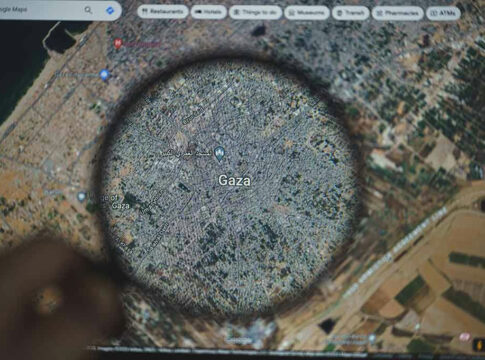President Trump’s refusal to embrace Palestinian statehood while laser-focusing on immediate humanitarian relief for Gaza has left global leaders—and American citizens—baffled, frustrated, and asking: does real leadership mean feeding the hungry or fueling more endless, feel-good diplomacy?
Trump Rejects Political Posturing, Demands Action for Starving Gazans
President Trump made it plain during his high-stakes meeting with UK Prime Minister Keir Starmer in Scotland: he wants to see Gazans get food, not empty gestures or more endless talk about recognizing a Palestinian state. While Starmer and the EU prattle on about peace processes and diplomatic breakthroughs, Trump cut through the noise, stating, “I’m looking for people getting fed right now. That’s the number one position, you have a lot of starving people.” His stance was as clear as it was unyielding—while the world’s bureaucrats chase political points, Trump’s America is delivering $60 million in aid and demanding results, not rhetoric.
Trump says his priority is to ensure Gazans are ‘getting fed,’ shrugs off push to recognize Palestinian statehttps://t.co/jsaJPACEut
— BREAKING NEWZ Alert (@MustReadNewz) July 28, 2025
This approach drew both praise and fury. Supporters see a president unwilling to let international virtue signaling distract from the real suffering in Gaza—starving children and desperate families. Critics, mostly from the “woke” European camp, insist that only formal recognition of Palestinian statehood can solve anything, as if a new flag and a few signatures will fill empty stomachs. It’s a classic split: action versus symbolism, real-world results versus diplomatic theater. American taxpayers, already tired of footing the bill for endless foreign “initiatives” that go nowhere, might finally see a president who demands that their money feed the hungry rather than prop up more United Nations cocktail parties.
Western Allies Split Over Policy as Gaza Crisis Deepens
Starmer and EU leaders are doubling down on their push for Palestinian statehood, calling it a vital step toward peace. The UK announced plans for dramatic aid airdrops, and the EU’s Ursula von der Leyen met Trump in Scotland to hash out broader humanitarian strategies. On the ground, the Israeli military has relented—slightly—allowing airdrops and opening corridors for UN trucks, but aid deliveries are still running at less than half of March’s levels. Over 250 trucks entered Gaza on July 26, but the enclave used to see 600 per day under the last ceasefire. The result? Catastrophic shortages, hunger, and a humanitarian crisis that makes all the posturing in London, Brussels, and New York feel downright obscene.
Trump’s hard line—no statehood talk, just aid—puts the US at odds with both allies and adversaries. The administration’s critics claim he’s ducking the “real issue,” but conservative voices see it differently. Why should America, after years of failed peace talks and billions sunk into foreign aid, rubber-stamp another round of empty promises? Trump’s refusal to play along has forced the UK and EU to step up, but has also left them scrambling for real results instead of press releases and hashtags. Meanwhile, Israel faces mounting pressure, trying to balance security with international outrage and the ever-present threat of more violence spilling over into their own cities.
Gaza’s Humanitarian Nightmare: Aid Bottlenecks, Political Deadlock, and No End in Sight
For families in Gaza, the diplomatic chess match means little. Food is scarce, aid convoys face delays and attacks, and the political deadlock shows no signs of breaking. Humanitarian organizations warn that current aid levels can’t even begin to address the scale of the crisis. While Trump’s team insists on focusing on the “urgent now,” critics warn that without a political solution, the cycle of violence and deprivation will never end. Aid airdrops and limited corridors are a band-aid on a gaping wound, and everyone knows it.
But here’s the kicker: American citizens—especially those who have watched decades of endless Middle East “solutions” burn through their tax dollars—are fed up with vague, feel-good gestures that accomplish nothing. The President’s approach might frustrate global elites, but it resonates with anyone who believes charity should mean results, not press conferences. As for the so-called “international community,” maybe it’s time for them to put their money where their mouth is, too. Until then, the only thing certain is that Gaza’s suffering will continue while world leaders argue about whose idea of “peace” looks best on a bumper sticker.
Sources:
CBS News: Trump in Scotland, UK Starmer, EU Trade Deal
Trump wants Scotland to ‘thrive’ as Swinney to press for tariffs cuts

